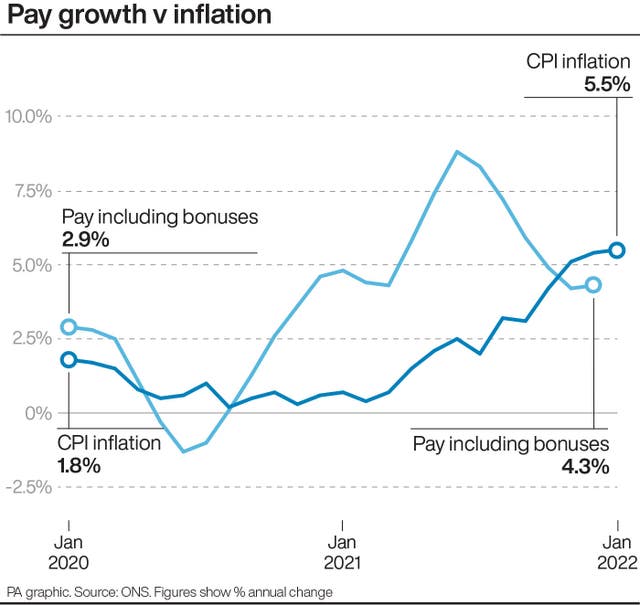
Labour leader Sir Keir Starmer has claimed the Government has not “looked closely enough” at Conservative Party donations to examine any possible links to Russian influence.
A flurry of diplomacy is currently under way between Western capitals and Moscow with more than 100,000 Russian troops massing on Ukraine’s borders, amid fears of an invasion.
Asked what more Sir Keir thought the Government should be doing to combat “Russian aggression”, he said: “It’s very important that we stand united with our allies, united with Nato.”
He added: “It’s also important that in the UK our political parties are united against Russian aggression.
I don't think they've looked closely enough at their own donations.
“But I do want to see the Government going further in relation to sanctions.
“I don’t think they’ve used the powers they’ve already got as much as they should have done and I don’t think they’ve looked closely enough at their own donations.
“And I think any donations to the Conservative Party that have any link to Putin should be looked at very, very carefully.”
He added: “I want to see further sanctions put in place as quickly as possible.
“We’ve been waiting for an economic crime bill for some time now.
“That needs to happen, it needs to happen fast and we will push the Government all the way on this.”
Sir Keir also urged the Government to do more on the cost of living, and called again for a “windfall tax” on the profits of oil and gas companies “which could bring energy bills down by £600”.
He was speaking during a visit to Erdington in Birmingham ahead of a by-election there next month, as the Office for National Statistics (ONS) published data on Wednesday showing inflation had risen to 5.5% in January – a 30-year high.
It is expected to hit 7.25% in April – the highest level since August 1991.
ONS figures published on Tuesday showed total pay growth rose to 4.3% for the quarter to December, meaning pay is failing to keep pace with rising prices.
 Inflation" data-title="ECONOMY Inflation" data-copyright-holder="PA Graphics" data-copyright-notice="PA Graphics/Press Association Images" data-credit="PA Graphics" data-usage-terms="" srcset="https://image.assets.pressassociation.io/v2/image/production/b2f13f2c0b20ba7e9e8bede2c4eb8155Y29udGVudHNlYXJjaGFwaSwxNjQ1MDg4NDQx/2.65344205.jpg?w=320 320w, https://image.assets.pressassociation.io/v2/image/production/b2f13f2c0b20ba7e9e8bede2c4eb8155Y29udGVudHNlYXJjaGFwaSwxNjQ1MDg4NDQx/2.65344205.jpg?w=640 640w, https://image.assets.pressassociation.io/v2/image/production/b2f13f2c0b20ba7e9e8bede2c4eb8155Y29udGVudHNlYXJjaGFwaSwxNjQ1MDg4NDQx/2.65344205.jpg?w=1280 1280w" sizes="(max-width: 767px) 89vw, (max-width: 1000px) 54vw, (max-width: 1071px) 543px, 580px">
Inflation" data-title="ECONOMY Inflation" data-copyright-holder="PA Graphics" data-copyright-notice="PA Graphics/Press Association Images" data-credit="PA Graphics" data-usage-terms="" srcset="https://image.assets.pressassociation.io/v2/image/production/b2f13f2c0b20ba7e9e8bede2c4eb8155Y29udGVudHNlYXJjaGFwaSwxNjQ1MDg4NDQx/2.65344205.jpg?w=320 320w, https://image.assets.pressassociation.io/v2/image/production/b2f13f2c0b20ba7e9e8bede2c4eb8155Y29udGVudHNlYXJjaGFwaSwxNjQ1MDg4NDQx/2.65344205.jpg?w=640 640w, https://image.assets.pressassociation.io/v2/image/production/b2f13f2c0b20ba7e9e8bede2c4eb8155Y29udGVudHNlYXJjaGFwaSwxNjQ1MDg4NDQx/2.65344205.jpg?w=1280 1280w" sizes="(max-width: 767px) 89vw, (max-width: 1000px) 54vw, (max-width: 1071px) 543px, 580px">
Sir Keir said: “Inflation has gone up again – it’s running at very high levels, the like of which we haven’t seen for years and years.
“That just adds to the pressure of the cost of living crisis, because families are already seeing their food bill has gone up, their fuel bill has gone up, their energy bill has gone up.
“Just at that moment, the Government intends to impose more tax – national insurance tax – on them in April, so the Government is whacking families who are already suffering under the cost of living crisis, instead of helping them.”
He added: “What we, the Labour Party, have said is, what you could do on energy bills is a windfall tax on the oil and gas companies in the North Sea – they’ve made more money than they were expecting because of global prices – and use that to bring down energy bills by up to £600.”
Sir Keir said: “We say that’s the right place to look for a reduction in energy bills.
It's a question of whose side you are on.
“What Government says is: ‘We will reduce energy bills for households by £100-£200 but households will have to pay it back for years to come.’
“So they’re forcing a loan on working families.”
“It’s a question of whose side you are on,” he added.
The Government has dismissed introducing a windfall tax and Chancellor Rishi Sunak has announced a package of measures to soften the impact of rising bills.
Sir Keir earlier also told The Guardian it was reasonable for workers to demand higher wages.
In comments seen as a veiled rebuke to Bank of England Governor Andrew Bailey, Sir Keir said it is “very difficult” to tell people they are not entitled to ask for a pay increase.
Mr Bailey, who took home £575,538 in pay and benefits last year, suggested this month that workers should not ask for large pay rises in order to avoid fuelling the rise in inflation.







